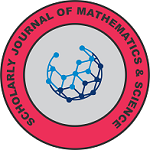Authors: 1Francis Cornelius Ennin, 1Emmanuel Atuahene, 2Seth Borbye, 2Peter Kwasi Sarpong
1,2Agogo College of Education, 1Offinso College of Education,
2Kwame Nkrumah University of Science and Technology
Email: franciscorneliusengine@yahoo.com | atuaemma@yahoo.com | abilele83@gmail.com | Kp.sarp@yahoo.co.uk
Abstract
Democracy, which is a form of government in which all eligible citizens have an equal say in the decisions that affect their lives is very crucial to every nation’s development. All over the world, political parties are seen as vital institutions for contemporary democratic dispensation and they play a vital role in the democratic process. They are crucial for the organization of modern democracy and are relevant for the expression and manifestation of political pluralism. The strategic role that parties play in any democratic nation means that funding their activities cannot be discounted. Finance is regarded as the most essential resource for political parties (van Biezen, 2003). Yet for too long, commitment to financing of political parties in Ghana has remained rhetoric.
In many ways, political activities involve expenses which should be seen as the necessary and unavoidable cost of democracy. Because money is one of the most essential resources for political parties, which are principal actors of modern democracy, it plays a critical role in the democratic process (van Biezen, 2003). In order for political parties to maintain their party organizations, employ party personnel, conduct election campaigns and communicate with electorates at large, appropriate financial resources need to be available. These leave political parties with no option than to fall on multinational companies or rich individuals to finance their election campaign activities. Allowing multinational companies or rich individuals to finance election campaign is not the best since the financiers would have to be compensated. This could lead to political corruption. It is therefore a necessity and very prudent for political parties to find ways of minimizing cost. The presidential aspirants’ taking the optimal route in all of his /her campaign visitation is one surest way of minimizing cost. This is what this thesis seeks to achieve or do. The major component of the cost incurred by the presidential campaign team is attributed to the cost of transportation between constituencies. The need to reduce the cost of campaign requires a critical look at minimizing the cost of transportation.
Keywords: Mathematical Model, Actual Distances, Political Party Traversed, Election Campaign

